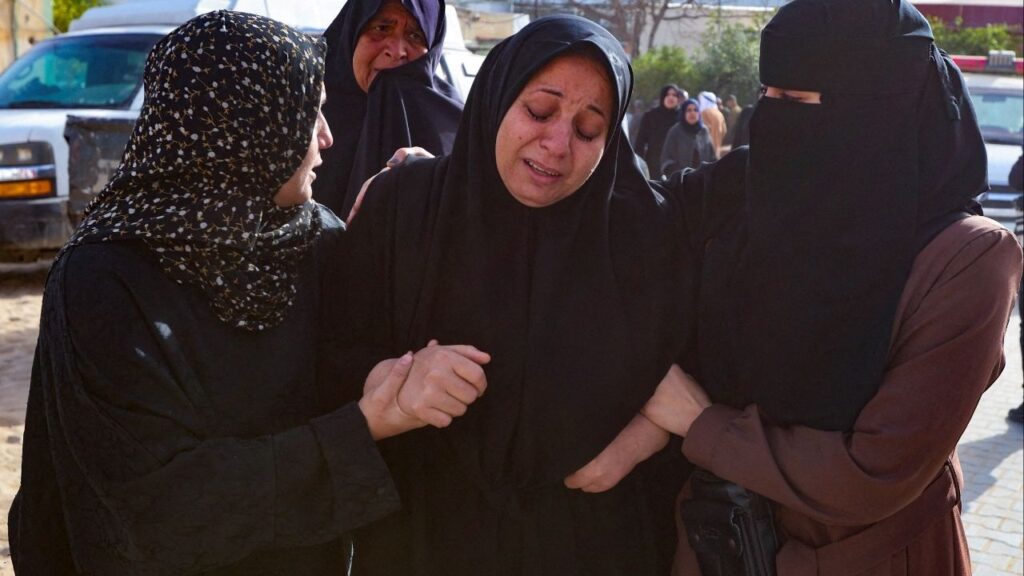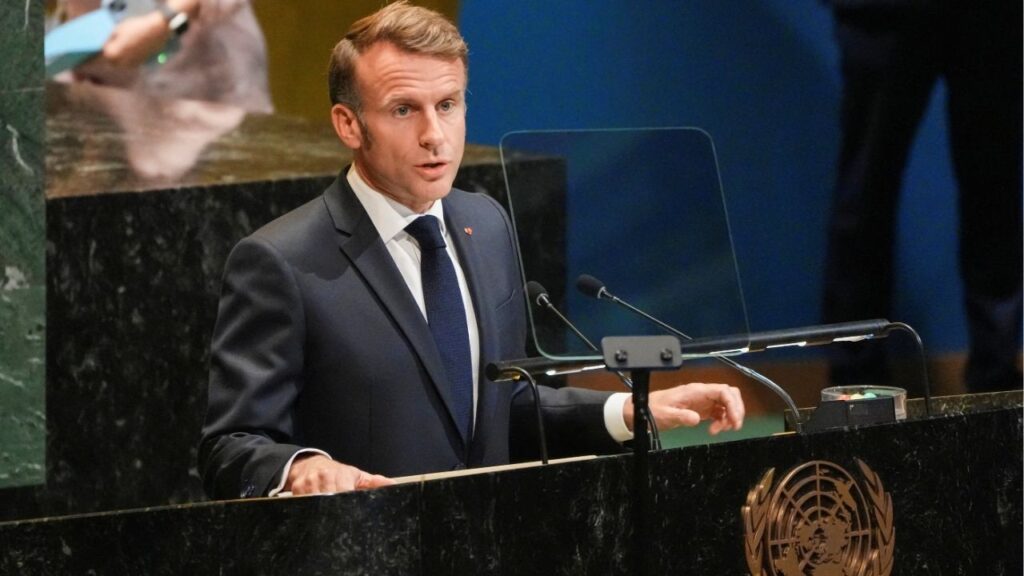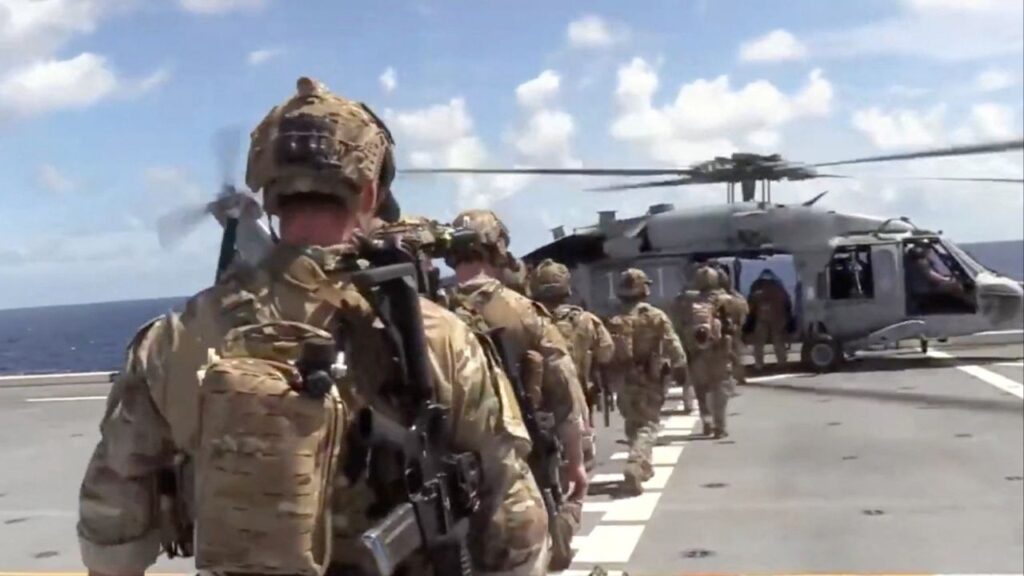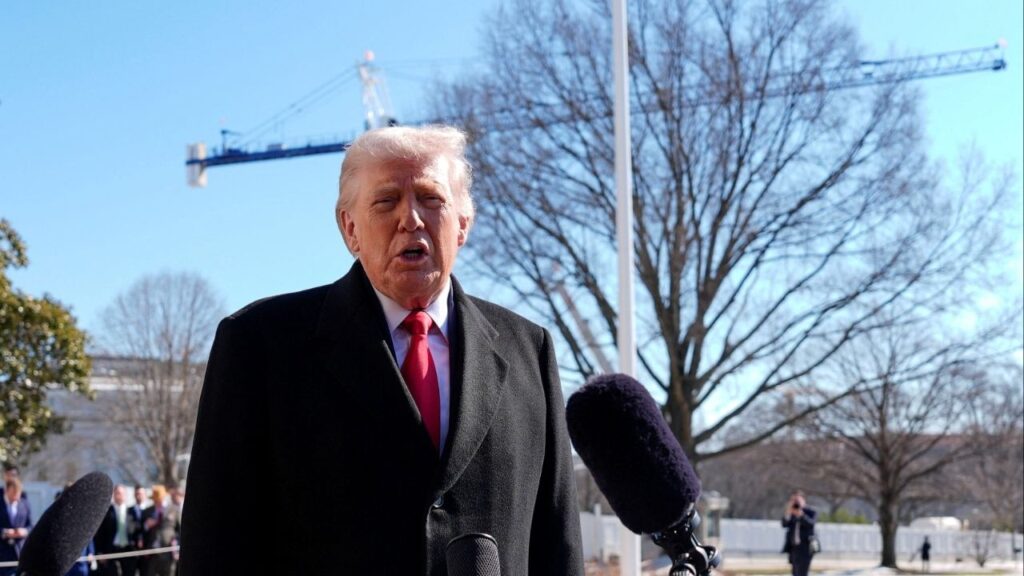Israeli Prime Minister Benjamin Netanyahu asserts Israel's right to decide its response to Iran's major air assault. (AP/Vahid Salemi)

- Israel's allies have been urging restraint since the attack.
- Iran's president warns of a "massive and harsh" response to any invasion of its territory.
- Netanyahu insists that Israel will make its own decisions on how to respond.
Share
|
Getting your Trinity Audio player ready...
|
JERUSALEM — Israeli Prime Minister Benjamin Netanyahu said Wednesday his country would be the one to decide whether and how to respond to Iran’s major air assault earlier this week, brushing off calls for restraint from close allies.
Israel’s Response to Iran’s Attack
Israel has vowed to respond to Iran’s unprecedented attack without saying when or how, leaving the region bracing for further escalation after months of unrest linked to the ongoing war in Gaza.
Israel’s allies have been urging Israel since the attack to hold back on any response that could spiral. These calls were repeated on Wednesday during visits by the British and German foreign ministers.
The diplomatic pressures came as Iran’s president warned that even the “tiniest” invasion of its territory would bring a “massive and harsh” response. Violence meanwhile surged on Wednesday between Israel and the Iran-backed Lebanese militant Hezbollah group, which fired a volley of rockets and drones on northern Israel. The attack wounded at least 14 Israeli soldiers, six seriously, the army said. The military said it struck Hezbollah targets deep inside Lebanon in response.
Netanyahu’s Stand on Israel’s Response
Speaking to a meeting of his Cabinet, Netanyahu said he met Wednesday with both visiting foreign ministers and thanked them for their countries’ support. But he said Israel would make the call on its own on how to respond despite “all sorts of suggestions and advice” coming from Israel’s allies, some of whom — including the United States, the United Kingdom and France — helped Israel repel Iran’s drone and missile assault.
“I want to be clear: we will make our decisions ourselves. The state of Israel will do whatever is necessary to defend itself,” Netanyahu said.
Despite the tough rhetoric, Israel appears unlikely to attack Iran directly without at least the support of its top ally, the U.S. But it could resort to more covert methods such as targeting senior Iranian commanders or Iran-backed groups in other countries, or launching a cyber attack.
It’s unclear how Iran would then respond, given the heightened tensions — any miscalculation by either side risks setting off a regional war.
Related Story: The Latest | World Leaders Urge Israel Not to Retaliate for the Iranian Drone ...
International Reactions and Iran’s Retaliation
President Joe Biden’s administration on Tuesday announced new sanctions on Iran and has worked to coordinate a global rebuke of the attack while urging all sides to de-escalate. U.S. officials said earlier this week that Biden told Netanyahu that Washington would not participate in any offensive action against Iran.
Over the weekend, Iran launched hundreds of missiles and drones at Israel in response to an apparent Israeli strike on Iran’s Embassy compound in Syria on April 1 that killed 12 people, including two Iranian generals.
Israel says it and its partners successfully intercepted nearly all the missiles and drones. A 7-year-old girl was wounded in the attack, which did not cause any deaths or major damage.
Israel and Iran have waged a shadow war for decades, but the strike over the weekend was the first direct Iranian military attack on Israel.
Related Story: Netanyahu Vows to Invade Rafah, Which US Calls a Mistake
Appeals for Restraint and Iran’s Warning
With tensions surging, Israel’s allies have reinforced a message of restraint. British Foreign Secretary David Cameron and German Foreign Minister Annalena Baerbock each appealed for calm while on separate visits to the region.
Cameron said “it’s clear the Israelis are making a decision to act” against Iran, but he hoped they would do so “in a way that is smart as well as tough and also does as little as possible to escalate this conflict.” He spoke after meeting with Israel’s President Isaac Herzog, whose office is mainly ceremonial.
Baerbock said Germany stands “in full solidarity with Israel” but called on it to exercise restraint.
“Everyone must now act prudently and responsibly. I’m not talking about giving in. I’m talking about prudent restraint, which is nothing less than strength,” she told reporters. “Because Israel has already shown strength with its defensive victory at the weekend.”
The ministers said they would push for further international sanctions on Iran.
Iran’s President Ebrahim Raisi warned Israel against any retaliation as he addressed an annual army parade, which had been relocated to a barracks from its usual route and was not carried live on state TV — possibly because of fears that it could be targeted.
In remarks carried by Iran’s official IRNA news agency, Raisi said the weekend attack was limited, and that if Iran had wanted to carry out a bigger attack, “nothing would remain from the Zionist regime.”



















